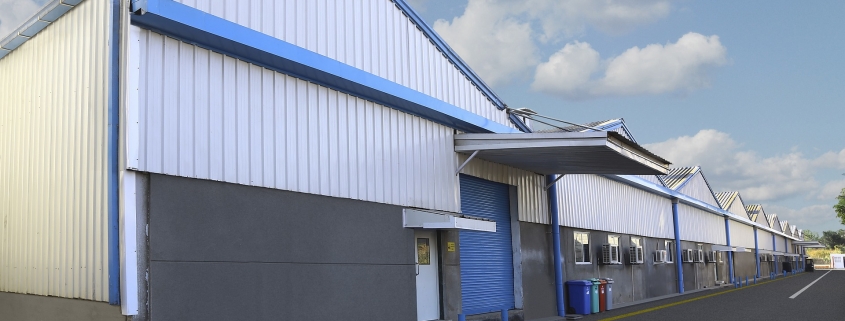Get Your Invoices Paid Faster With Manufacturing Factoring
Last Updated October 6, 2023
For businesses in the manufacturing industry, maintaining consistent cash flow is one of the most significant challenges because prompt invoice payments are required to achieve it. Unfortunately, because long invoice payment terms are common in the industry, cycles of negative cash flow and mounting debt can occur, particularly when dealing with slow-paying customers. A solution for many is manufacturing factoring.
You need cash to grow your company, keep it competitive, build new relationships with suppliers, and fuel growth opportunities. This is where manufacturing invoice factoring comes in.
In this article, we discuss how invoice factoring for manufacturing works, the benefits that come with it, and how it compares to other financing alternatives.
What Is Manufacturing Factoring?
Manufacturing invoice factoring involves the process of selling your business’s invoices to a third-party company (factoring company) in exchange for a cash advance. Invoice factoring is generally utilized by business owners with customers who delay payment, preventing a business from staying cash flow positive.
How Does Manufacturing Factoring Work?
Manufacturing factoring through altLINE works by turning unpaid invoices into cash, helping you pay for raw materials, overhead, and operating expenses to grow your business. Cash advances also improve your cash flow, softening the blow of delinquent customers. Instead of waiting on customer payments, you can use invoice factoring services to get cash when you need it.
Once you’ve signed a contract with a factoring company and your customer has been informed of a factor’s involvement, here’s how the process works:
1. Submit Your Unpaid Invoices
The first step of manufacturer factoring is submitting an invoice to the factor once you’ve sent them to your customer. A factoring company like altLINE will accept almost all outstanding customer invoices, so long as the customers have a fair credit score or have been reliable payors in the past.
2. You Receive Your Factoring Cash Advance
You can generally expect an advance rate of 80-90% of the invoice’s face value, with the cash advance deposited within about 24 hours of submission.
3. Customer Submits Payment to the Factoring Company
Next, your customer sends payment to the factor. We assist manufacturing customers in collecting payments by providing a lockbox in your company’s name and reporting customer payments through an online portal. If issues arise, our team will work with you to contact customers to resolve payment disputes professionally, helping you maintain good business relationships.
4. You Receive the Remaining Value of the Invoice
After the factored invoices are collected and payment is processed, you are sent the remaining 10-20% of the invoice value, minus a small factoring fee (typically 0.5%-3.75%).
Benefits Of Invoice Factoring for Manufacturers
Factoring for manufacturing companies offers you a cash advance in exchange for your unpaid invoices, essentially accelerating your payment process. Some benefits of accounts receivable factoring for manufacturing companies include:
1. Get Your Accounts Receivables Paid in Days, Not Months
The best manufacturer factoring companies approve applications within 1 or 2 days. Factoring moves up your payment schedule, as you’ll receive 80 to 90% of the value of each invoice right away instead of in, say, 30, 60, or 90 days.
2. Access Capital to Grow, While Maintaining Equity
As a manufacturer, you might be forced to miss growth opportunities or large orders because you do not have enough existing working capital to pursue them. Maybe it’s because you’re awaiting payment for an existing order. Thankfully, invoice factoring can essentially entirely reduce this problem and help set you up for long-term success.
Manufacturing factoring gives you the cash to seize growth opportunities, pay debts, and buy materials without sacrificing equity.
3. No Collateral Required
One of the best aspects of factoring is that you don’t have to risk business or personal assets to obtain funding. In fact, possessing what would be considered significant collateral isn’t typically even a requirement during the application process.
Instead, factors will focus mostly on your customers’ creditworthiness and reliability. After all, they’re the ones who will be paying the invoice – not your business.
4. Take the Guesswork Out of Payments
Slow invoice payments and delinquent customers may seriously impede your finances, but what’s particularly stressful is not knowing when you’ll receive payment. It could be one day, one week, or one month. For small businesses specifically, this can be especially difficult.
Manufacturing factoring takes the guessing out of the equation – cash will always be advanced within 1 to 2 days of passing along an invoice to your factor.
Uses For Your Factoring Cash Advance
Receiving cash advances from manufacturing factoring means you do not have to wait for customer payments to fund your business and maintain enough working capital to operate how you’d like.
Here are some ways to use the cash you get from invoice factoring:
Take On New Orders
Manufacturers need to buy lots of raw materials to complete jobs but may not always have the cash on hand to do it. You shouldn’t have to wait for customers to pay before taking on new orders, especially if it’s a large one that can accelerate your business! Invoice factoring gives you the cash necessary to buy the materials necessary to complete new jobs, promoting business growth while maintaining your equity.
Make Payroll
Punctual payroll is one of the hallmarks of a successful business. Unfortunately, slow and late customer payments result in negative cash flow, potentially jeopardizing your payroll obligations. Getting a cash advance from invoice factoring prevents payroll issues, even when customers take a long time to pay.
Pay Operating Expenses
Negative cash flow makes paying for plant maintenance, transportation, and other operating expenses tough. Extra funds from factoring for manufacturing companies lets you pay those obligations without getting into debt or sacrificing equity.
Manufacturing Businesses We Fund and Finance
altLINE offers factoring services for various manufacturing businesses. Here are some examples of the services we provide in the sector:
- Food and beverage manufacturing factoring
- Textile and apparel factoring
- Cosmetics manufacturing invoice factoring
- Electronics production factoring
- Metal manufacturing factoring
- Oil, chemicals, and plastics factoring
Factoring Your Manufacturing Invoices vs Other Funding Options
In addition to manufacturer factoring, you have other financing options to improve business cash flow. Here is a comparison of the alternative manufacturer financing options:
Manufacturing Factoring vs. Bank Line of Credit
Many manufacturing companies seek a bank line of credit as their first financing option. While plenty of manufacturers can qualify for a line of credit, the funds it provides may not be enough to develop their businesses.
Banks usually look at your fixed assets to determine your line of credit approval. A bank line of credit is a good option for established manufacturers because most have machines and equipment to collateralize. However, you may not have a lot of fixed assets if you’re a new manufacturer or small business, which means you’ll have a harder time qualifying.
Manufacturing factoring is a great choice for new or growing business because the factoring company focuses on your customers’ credit background and fixed assets rather than your own to approve funding. If you work with creditworthy customers, factoring companies are more likely to give you the funds that banks cannot.
Manufacturing Factoring vs. ACH/MCA Loans
ACH (automated clearing house) and MCA (merchant cash advance) loans are marketed as quick, easy-to-qualify loans for businesses. ACH and MCA lenders only need your bank statements for review, and you can get the money within one or two business days.
However, ACH and MCA loans have notoriously high interest and lender fees, which can total up to 60% of your initial loan. Moreover, ACH and MCA lenders often offer renewals aggressively, which could potentially put your company in deep financial trouble. Often, users are left trying to figure out how to get out of a merchant cash advance.
Because invoice factoring uses your unpaid invoices as collateral, you can usually rest assured knowing customers will eventually repay your cash advance.
Manufacturing Factoring vs. Early Payment Discounts
Offering special rates to customers who pay quickly is a viable way to accelerate your cash flow when needed. However, this method almost entirely depends on whether or not the customer thinks your early payment discount is a good deal. Additionally, some businesses may even prioritize having cash on hand over receiving a discount for early payment, leaving you low on working capital and unable to grow your business.
Invoice factoring is typically more reliable because you’re almost guaranteed a cash advance if approved.
Typical Manufacturer Factoring Rates and Fees
When factoring for manufacturing companies, your fees depend on how much you plan to factor and how long your customers take to pay. Factoring more and getting customers to pay faster usually lead to lower factoring rates. We also consider additional criteria like your business tenure, customer base diversity, and overall customer credit quality:
When factoring an invoice, we charge two types of fees:
- Initial fee: Your initial fee covers the invoice processing expense for an initial set duration (typically 30 days) and costs 0.90-3.50% of your total invoice value.
- Incremental fees: Your incremental fees kick in after the initial fee period to compensate the factoring company for its time. Incremental fees usually cost 0.25-1.50% of your total invoice value per charge, and these fees typically increase the longer your invoice remains outstanding.
Requirements To Apply for Factoring Services for Manufacturing Companies
You need to apply to be eligible for manufacturing factorings. Here are the documents needed to do so:
List Of Existing and Potential Customers
altLINE needs a list of all existing and potential customers as part of your application. We require this to review the credit quality of your customer base and determine factoring eligibility.
Manufacturer Invoice Factoring Application
You must complete a form as part of your factoring application process. Additionally, you will need to enclose the following documents:
- Business ownership identification
- Personal identification
- Employer Identification Number
- Customer contracts
- Articles of incorporation and other relevant corporate documents
Accounts Receivable Aging Report
Businesses record all outstanding invoices in an accounts receivable aging report. We need this report to research your customers’ payment behaviors and determine their factoring eligibility. We will consider invoices that are 30 to 90 days outstanding, but invoices for customers who have shown an inability to pay may not be eligible for factoring.
Manufacturing Factoring FAQs
Here are some common questions about manufacturer factoring services answered:
Do you need to run a credit check before getting started?
altLINE runs a credit and background check on all manufacturing company owners that apply for factoring. However, there are no minimum credit thresholds for approval. Background checks are reviewed for financial-related crimes or felonies. In the event a borrower has a spotty background, approval with altLINE may be in question, but in the event the borrower is disqualified, altLINE will often work with the borrower to identify a manufacturing factor that is willing to help.
Is manufacturing factoring a debt or loan?
Manufacturing factoring is neither debt nor a loan. Invoice factoring is the sale of your invoices to a third party. The money advanced against these invoices will be repaid by your customers.
However, altLINE is a recourse factor, so you may need to pay the cash advance back if your customer fails to pay their invoice.
Do you offer non-recourse manufacturing factoring?
altLINE only offers recourse manufacturing factoring. While you must repay the cash advance if your customer fails to pay, recourse factoring structures often allow for factors to extend lower rates and larger credit limits on your customers. If a customer does fail to pay, we will work with you to find the best-possible, most reasonable course of action for both sides.



